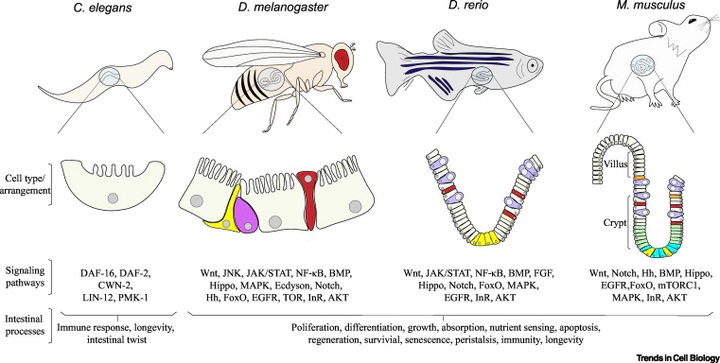
Abstract
The intestine maintains homeostasis by coordinating internal biological processes to adjust to fluctuating external conditions. The intestinal epithelium is continuously renewed and comprises multiple cell types, including absorptive cells, secretory cells, and resident stem cells. An important feature of this organ is its ability to coordinate many processes including cell proliferation, differentiation, regeneration, damage/stress response, immune activity, feeding behavior, and age-related changes by using conserved signaling pathways. However, the subcellular spatial organization of these signaling events and the organelles involved has only recently been studied in detail. Here we discuss how organelles of intestinal cells serve to initiate, mediate, and terminate signals, that are vital for homeostasis.